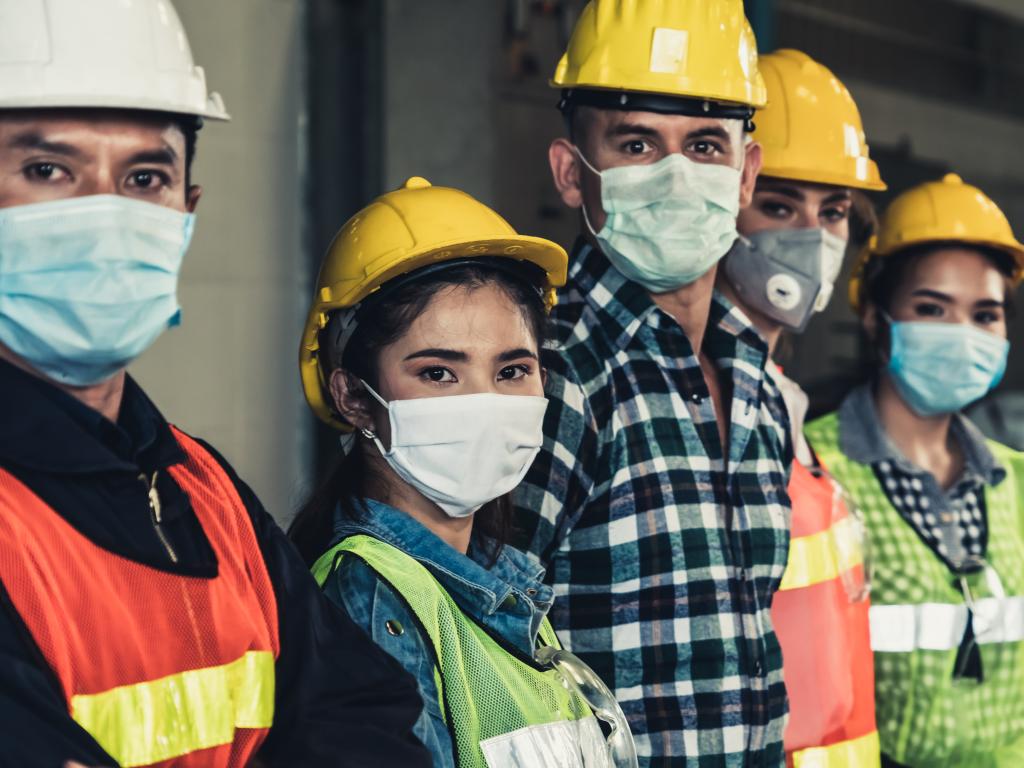Mining companies should not protect only mineworkers against Covid-19, but mining communities as well: AMCU v DMRE & Others

On 1 May 2020, South Africa celebrated workers day. On the same day, the Labour Court heard an urgent application brought by one of the mining unions, the Association of Mineworkers and Construction Union (AMCU), against the Minister of Mineral Resources and Energy.[1] In this matter, AMCU calls for the detailed regulations and necessary measures to be put in place by mining companies to ensure that mineworkers are adequately protected from contracting the novel coronavirus (Covid-19) in line with the objectives of the Mine Health and Safety Act 29 of 1996 (MHSA). This important development follows the gazetting of emergency lockdown regulations in terms of section 26 of the Disaster Management Act 57 of 2002 (DMA) which permitted mining operations to resume to a limited extent.
Beyond question is that the lockdown affects all sectors of industry across the world and the country (https://news.un.org/en/story/2020/03/1060702). The mining industry is not spared and all mining companies were forced into an ongoing resumption of 50 per cent of production capacity, with an exception of only few specified open cast and coal producing mines supplying state power utility Eskom that are permitted to operate at full capacity.
A brief background to this case is that community networks and other civil society groups wrote an open letter addressed to President Cyril Ramaphosa and the Minister of Mineral Resources and Energy, Mr Gwede Mantashe. In this letter, these groups expressed their shared concerns about the lack of clear measures for the protection of mineworkers and affected mining communities against the Covid-19 pandemic. The Minister responded positively by issuing updated regulations ordering that a screening and testing programme must be put in place for mineworkers, and that mining companies must make arrangements to transport their employees to and from work, as well as to avail the quarantine facilities to those who test positive for Covid-19. However, these new regulations do not go far enough to ensure that mineworkers are protected and make no reference to, for example, the need for personal protective equipment and medical facilities. It is for this reason, among others, that AMCU had to launch an urgent application in the Labour Court calling for the Minister to ensure that mineworkers are adequately protected in line with the provisions of the MHSA.
Quite interestingly, the community network called the Mining Affected Communities United in Action (MACUA) applied to intervene in this matter as an amicus curiae, i.e ‘a friend of the court’. In justifying its amicus curiae application, MACUA submitted that the safety measures and safeguards that need to be put in place for mineworkers’ interests, as argued by AMCU, should be extended to affected mining communities and be developed in consultation with them.[2] The National Co-ordinator of MACAU stated that the “mineworkers are not separate from communities” and they do not “leave the threat of the virus behind at work. We are already at risk because most people in rural communities do not have proper access to water and some have lung issues from the air pollution that comes with mining”.
Ultimately, the Labour Court ruled in favour of the AMCU and the MACUA. Some of the key orders of the court is that the Chief Inspector of Mines must by 18 May gazette minimum guidelines for mining companies on managing and mitigating the impact Covid-19 pandemic under the terms of the MHSA and, in doing so, to “meaningfully engage with the relevant trade unions … and Mining Affected Communities in Action, and such other interested person.”[3]
In conclusion, the AMCU v DMRE & Others case adds to a growing number of judgments that call for the mining sector authorities to respect and observe meaningful engagement with affected communities. The other cases include the Maledu[4] and Bengwenyama.[5] The DMRE is once again reminded not to exclude communities from participating in the decisions that directly affect them. The author endorses the Labour Court judgement in this matter as it affirms the mining communities’ right to be recognised as interested and affected parties that must be “meaningfully engaged”.
Written by Gaopalelwe Mathiba.
This work was carried out under the COVID-19 Africa Rapid Grant Fund supported under the auspices of the Science Granting Councils Initiative in Sub-Saharan Africa (SGCI) and administered by South Africa’s National Research Foundation (NRF) in collaboration with Canada’s International Development Research Centre (IDRC), the Swedish International Development Cooperation Agency (Sida), South Africa’s Department of Science and Innovation (DSI), the Fonds de Recherche du Québec (FRQ), the United Kingdom’s Department of International Development (DFID), United Kingdom Research and Innovation (UKRI) through the Newton Fund, and the SGCI participating councils across 15 countries in sub-Saharan Africa.
[1] Association of Mineworkers and Construction Union v Minister of Mineral Resources and Energy and Others (2020) Labour Court: Case number: J427/2020.
[2] See MACUA’s press release available at https://macua.org.za/2020/05/01/macua-wamua-welcome-the-decision-of-the-labour-court-in-the-case-between-amcu-and-the-minister-of-mineral-resources-and-energy/ (accessed 03 May 2020).
[3] See court order number 3, 3.3.
[4] Maledu and Others v Itereleng Bakgatla Mineral Resources (Pty) Limited and Another (CCT265/17) [2018] ZACC 41; 2019 (1) BCLR 53 (CC).
[5] Bengwenyama Minerals (Pty) Ltd and Others v Genorah Resources (Pty) Ltd and Others (CCT 39/10) [2010] ZACC 26; 2011 (4) SA 113 (CC).
